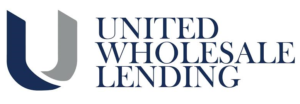Welcome to our comprehensive guide on cash-out refinance loans, a powerful financial tool that allows homeowners to tap into their home’s equity. Whether you’re looking to consolidate debt, make home improvements, or fund other important expenses, a cash-out refinance loan can provide the solution you need. In this article, we will explore the ins and outs of cash-out refinance loans, covering everything from the basics to frequently asked questions. So let’s dive in and discover how you can unlock the potential of your home’s equity!
Cash-Out Refinance Loan: Exploring the Basics
A cash-out refinance loan is a type of mortgage refinancing that enables homeowners to borrow against the equity they have built in their property. By refinancing their existing mortgage for a higher amount than what is currently owed, homeowners can receive the difference in cash. This additional cash can then be used for various purposes, providing borrowers with the flexibility to meet their financial goals.
How Does a Cash-Out Refinance Loan Work?
To understand how a cash-out refinance loan works, let’s break down the process into simple steps:
- Evaluate Your Home’s Equity: Before considering a cash-out refinance loan, it’s essential to determine the amount of equity you have in your home. Equity is the difference between your home’s current market value and the remaining balance on your mortgage.
- Research Lenders and Loan Options: Once you have assessed your home’s equity, research different lenders and loan options to find the one that best suits your needs. Look for reputable lenders who offer competitive rates and favorable terms.
- Submit an Application: Once you have selected a lender, you will need to complete an application for a cash-out refinance loan. The lender will evaluate your creditworthiness, income, and other factors to determine your eligibility.
- Appraisal and Underwriting: After submitting your application, the lender will conduct an appraisal of your property to assess its current value. This step is crucial in determining the maximum amount you can borrow. Additionally, the lender will review your financial information and perform underwriting to assess the risk associated with the loan.
- Closing and Funding: If your application is approved, you will proceed to the closing stage. During closing, you will sign the necessary documents, and the new loan will be funded. At this point, your existing mortgage will be paid off, and you will receive the cash-out portion of the loan.
- Repayment and Interest: After the cash-out refinance loan is funded, you will have a new mortgage with updated terms. It’s important to note that the cash-out portion of the loan will accrue interest and must be repaid over time, typically through monthly installments.
Benefits of a Cash-Out Refinance Loan
A cash-out refinance loan offers several advantages that make it an attractive option for homeowners:
- Access to Funds: By tapping into your home’s equity, a cash-out refinance loan allows you to access a substantial amount of money. This can be particularly beneficial for financing major expenses, such as home renovations, education, or medical bills.
- Debt Consolidation: If you have high-interest debts, such as credit card balances or personal loans, a cash-out refinance loan can be used to consolidate these debts into a single, more manageable payment. This can help simplify your finances and potentially save money on interest payments.
- Improved Interest Rates: Depending on market conditions
Benefits of a Cash-Out Refinance Loan (Continued)
- Improved Interest Rates: Depending on market conditions, a cash-out refinance loan can provide an opportunity to secure a lower interest rate compared to other types of loans, such as personal loans or credit cards. This can result in significant savings over the life of the loan.
- Potential Tax Benefits: The interest paid on a cash-out refinance loan may be tax-deductible, subject to certain limitations. It’s always recommended to consult with a tax professional to understand the specific implications for your situation.
- Consolidation of Multiple Mortgages: If you have multiple mortgages on your property, a cash-out refinance loan can simplify your financial obligations by consolidating them into a single mortgage. This can streamline your payments and potentially reduce your overall interest expenses.
- Investment Opportunities: The cash received from a cash-out refinance loan can be used to invest in other properties, stocks, or businesses, providing you with the potential for additional income or long-term financial growth.
- Home Value Enhancement: By using the funds from a cash-out refinance loan for home improvements, you can increase the value of your property. This can be particularly advantageous if you plan to sell your home in the future, as it can attract potential buyers and potentially result in a higher selling price.
Understanding the Risks
While a cash-out refinance loan offers numerous benefits, it’s essential to consider the associated risks:
- Increased Debt Burden: Taking on additional debt through a cash-out refinance loan means that you will have a higher mortgage balance. It’s crucial to ensure that you can comfortably afford the new monthly payments and that the benefits outweigh the potential long-term costs.
- Fluctuating Market Conditions: The value of your home can fluctuate over time, affecting your equity. In the event of a decline in home values, you may end up owing more on your mortgage than your property is worth, which is known as being “underwater.” Careful consideration of market conditions is important when considering a cash-out refinance loan.
- Extended Repayment Period: By refinancing your mortgage, you may extend the repayment period, resulting in more years of mortgage payments. It’s important to evaluate the impact of a longer loan term on your overall financial goals and future plans.
A cash-out refinance loan can be a valuable financial tool for homeowners looking to leverage their home’s equity for various purposes. Whether you’re in need of funds for home improvements, debt consolidation, or other significant expenses, a cash-out refinance loan offers flexibility and potential benefits. However, it’s crucial to carefully evaluate the associated risks, consider market conditions, and assess your financial situation before making a decision.
Remember, consulting with reputable lenders, understanding the terms and costs, and exploring multiple options are key steps in securing the right cash-out refinance loan for your needs. By leveraging your home’s equity wisely, you can unlock the potential of your most valuable asset and achieve your financial goals.
Frequently Asked Questions (FAQs)
1. Can I get a cash-out refinance loan if I have bad credit?
Yes, it’s possible to obtain a cash-out refinance loan with bad credit. However, it may be more challenging to qualify, and you may receive less favorable terms compared to borrowers with excellent credit. It’s recommended to explore different lenders and consider working on improving your credit score before applying.
2. How much can I borrow with a cash-out refinance loan?
The amount you can borrow with a cash-out refinance loan depends on various factors, including your home’s current value, the remaining balance on your mortgage, and the lender’s guidelines. Typically, lenders allow borrowers to cash out a percentage of their home’s equity, often up to 80% or 85% of the appraised value.
3. Are there any restrictions on how I can use the cash from a cash-out refinance loan?
No, there are generally no restrictions on how you can use the funds from a cash-out refinance loan. You have the freedom to use the money for any purpose, such as home improvements, debt consolidation, education expenses, or other financial needs.
4. What are the closing costs associated with a cash-out refinance loan?
Similar to a traditional mortgage refinance, a cash-out refinance loan typically incurs closing costs. These costs may include application fees, appraisal fees, title search and insurance fees, origination fees, and other miscellaneous expenses. It’s important to factor in these costs when evaluating the overall financial impact of a cash-out refinance loan.
5. How long does the cash-out refinance process take?
The duration of the cash-out refinance process can vary depending on several factors, including the lender’s processes, the complexity of the loan application, and the time required for the property appraisal. On average, the process can take anywhere from 30 to 45 days, although it’s possible to expedite the process in certain circumstances.
6. Can I refinance an existing cash-out refinance loan?
Yes, it’s possible to refinance an existing cash-out refinance loan, known as a “cash-out refinance of a cash-out refinance.” However, lenders may have specific guidelines and limitations on how soon you can refinance again. It’s important to discuss your options with lenders and consider the potential costs and benefits before proceeding.



